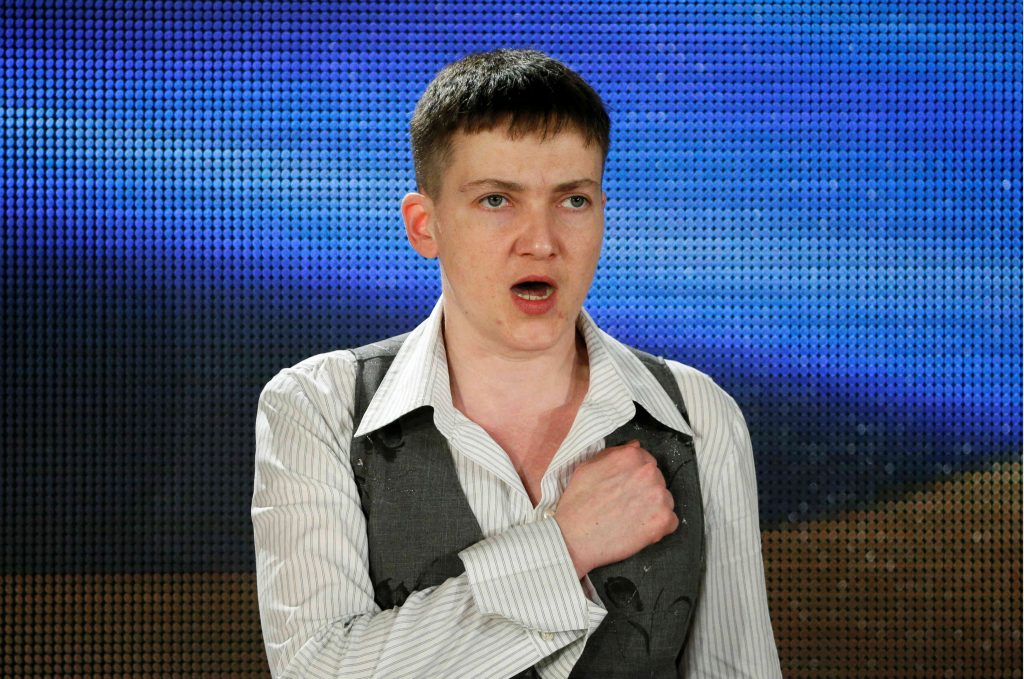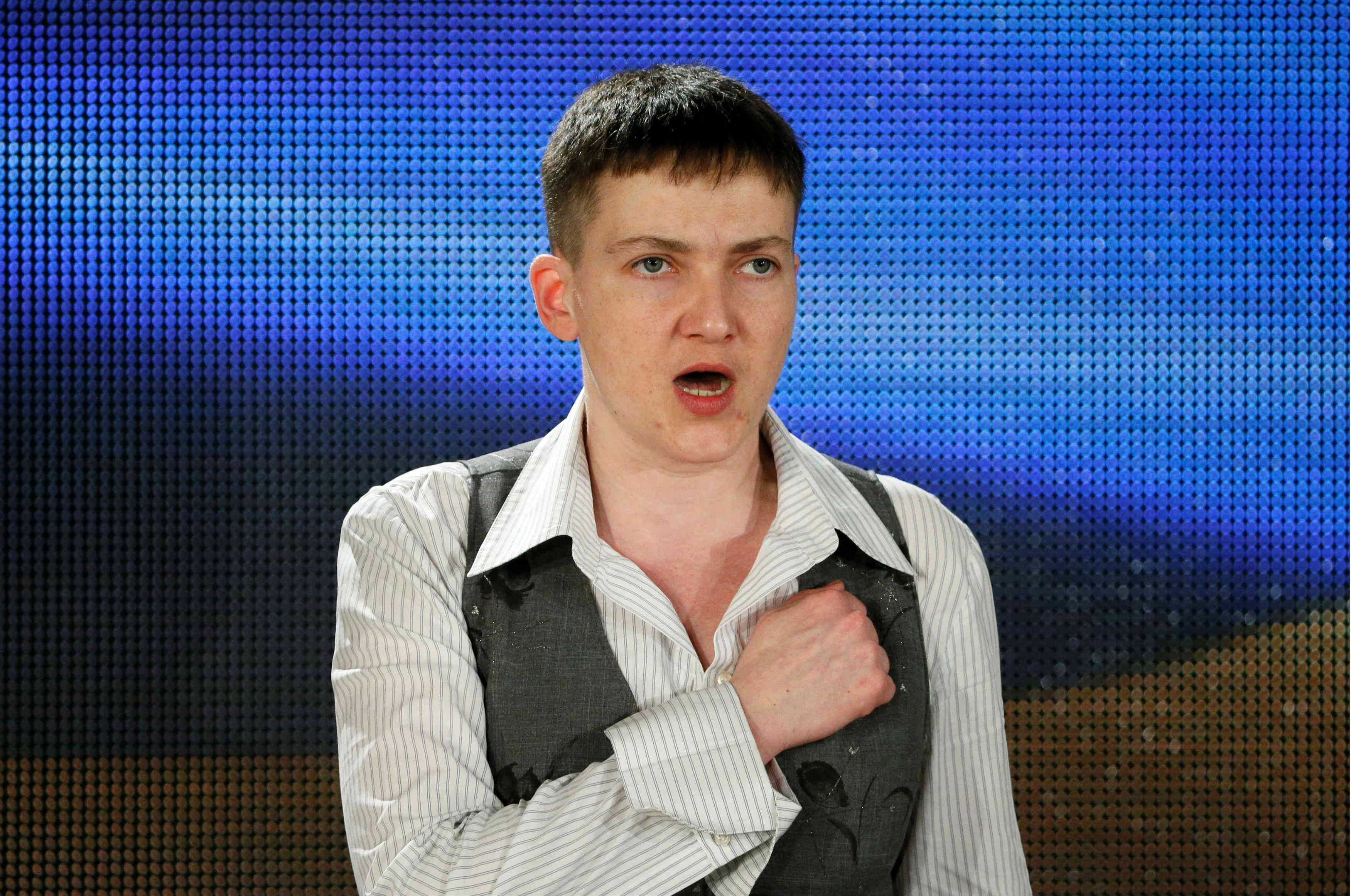 The release from a Russian prison and return of helicopter pilot Nadiya Savchenko to Ukraine has ignited speculation about her future political plans. Elected as the first candidate on the party list of Yulia Tymoshenko’s bloc in the October 2014 parliamentary elections, Savchenko immediately entered politics upon her return to Ukraine.
The release from a Russian prison and return of helicopter pilot Nadiya Savchenko to Ukraine has ignited speculation about her future political plans. Elected as the first candidate on the party list of Yulia Tymoshenko’s bloc in the October 2014 parliamentary elections, Savchenko immediately entered politics upon her return to Ukraine.
Savchenko’s initial speeches focused primarily on the war in the Donbas. About her personal ambitions, she went as far as to state, “Ukrainians, if you want me to be president—well, I’ll do it.” She appeared at a press conference at the Fatherland Party headquarters soon after returning, and promptly joined the Fatherland faction in parliament.
Tymoshenko has never been known to share the spotlight with others, and it remains to be seen how long this relationship will last. One factor that prevents Savchenko from being an independent MP and leading her own reform movement is the recent Law #3700 and enforcement of Article 81 of the Ukrainian constitution. These two provisions stipulate that MPs elected from the party list can be expelled from parliament and lose their mandates at the party’s will. Thus, if Savchenko quit the Fatherland faction, Tymoshenko could have her expelled from parliament immediately. Granted, it wouldn’t help Tymoshenko’s rating, but it is not likely to hurt it either, as the veteran politician has a hardcore 13 percent of the electorate at her disposal.
It is inevitable that polls will soon be released showing Savchenko as the most popular politician in the country. This will benefit Fatherland—and Tymoshenko, too. Although snap parliamentary elections are not likely until at least next summer, there are seven vacant parliamentary districts up for grabs in special elections on July 17.
While Fatherland won just two single-mandate districts in the 2014 parliamentary elections (when it received 5.5 percent nationwide), it did win thirty-nine seats in the 2012 parliamentary elections (when it received 26 percent nationwide). These results demonstrate that when Fatherland’s rating is high, it can win individual districts. Its current average rating is around 16 percent, and the addition of Savchenko will certainly increase support for the party.
If Savchenko actively campaigns for Fatherland candidates in these seven districts, it will be an early indicator of her popularity and its effect on the electorate. It has already been reported that Savchenko’s sister Vira is planning to be the Fatherland candidate in Ivano Frankivsk District #85 (Kalush). Clearly Savchenko will be campaigning for her there, but if she also gets behind Fatherland candidates elsewhere, that will be the real test of her political impact.
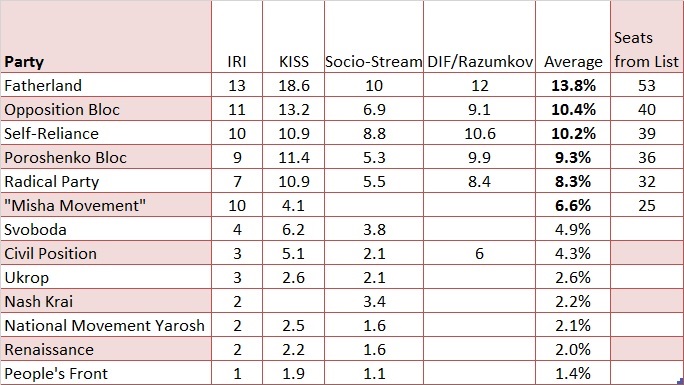
Current poll averages and projected numbers of seats from the party list ballot
What if snap elections for parliament were held today? According to the averages of recent polls, Fatherland is leading the field with almost 14 percent. It is followed by the Opposition Bloc and Self-Reliance, both at 10 percent. The Poroshenko bloc follows with 9 percent, Radical Party with 8 percent, and the “Misha Movement’ (Mikheil Saakashvili) passes the barrier with almost 7 percent. Assuming that there are no net changes in the number of MPs elected from districts, that would leave the Poroshenko Bloc the largest in parliament, with 115 members, followed by Fatherland and Opposition Bloc with fifty-five each. Self-Reliance and the Radical Party would increase to forty and thirty-two members, respectively, and Saakashvili’s new party would have twenty-five MPs.
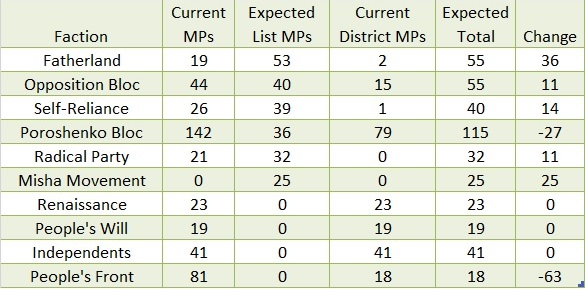
Projection of seats in the next parliament based on current polling and districts
However, the Savchenko effect could easily boost Fatherland’s vote total by 5 percent. This would give Fatherland sixty-nine seats in parliament, making it the second largest faction after the Poroshenko Bloc, at 112. The Opposition Bloc would be third with fifty-two members.
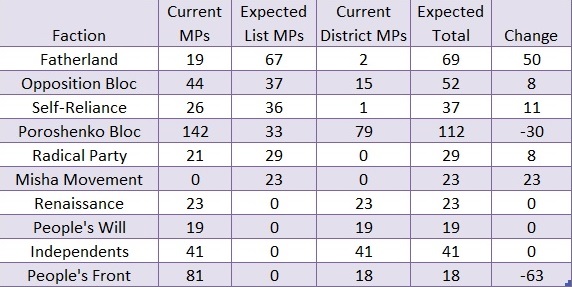
Projected seats in parliament if Fatherland gets a 5 percent rating boost from the “Savchenko effect”
But if the Savchenko effect is even stronger, the party could gain eighty seats in parliament, or more: having, in effect, statistically the same strength as the People’s Front has in the current parliament. The Poroshenko Bloc could remain the largest, or could lose its majority to the Fatherland party. This could pave the way for Tymoshenko’s return as prime minister.
Clearly, accommodating Savchenko is in Tymoshenko’s short-term interests, even if it means sharing the political spotlight. And snap parliamentary elections are also in Tymoshenko’s interest—sooner rather than later. In the meantime, the Savchenko effect will be tested in the seven parliamentary districts on July 17. Victories in one more of those seats will shake up the political scene in Ukraine and serve as a bellwether of future elections.
Brian Mefford is a Nonresident Senior Fellow at the Atlantic Council’s Dinu Patriciu Eurasia Center. He is a business and political consultant who is based in Kyiv, Ukraine. This article has been adapted from Mefford’s blog.
Image: Ukrainian servicewoman Nadiya Savchenko sings the national anthem during a news conference in Kyiv, Ukraine, May 27, 2016. REUTERS/Gleb Garanich TPX IMAGES OF THE DAY
